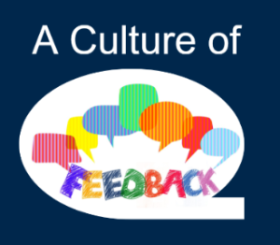About the Program
The Michigan Integrative Well-Being and Inequality Training Program is an exciting opportunity for early-career scientists to investigate the intersection
of mental and physical health, with a focus on health disparities. Our unique program
structure provides intensive support for scholars to develop research skills in these
key areas.
Program Structure
The MIWI Training Program supports scholars' research with three key components.
Institute
 A 3-day institute in which scholars participate in seminars, work-groups, and individual
meetings with mentors focused on conducting integrative research on the intersection
of mental and physical health and health disparities. The 2022 Institute will take
place from June 12 - 15 in Ann Arbor, MI.
A 3-day institute in which scholars participate in seminars, work-groups, and individual
meetings with mentors focused on conducting integrative research on the intersection
of mental and physical health and health disparities. The 2022 Institute will take
place from June 12 - 15 in Ann Arbor, MI.
Ongoing Mentorship
 Scholars will be matched with two research mentors who will support ongoing development.
Mentors will be chosen based on scholars' areas of research and training needs.
Scholars will be matched with two research mentors who will support ongoing development.
Mentors will be chosen based on scholars' areas of research and training needs.
Research Network Building
 The MIWI Training Program will support your research productivity and work dissemination
using a personal training plan. Additionally, scholars will be able to maintain contact
with MIWI faculty, scholar peers, and partnering organizations.
The MIWI Training Program will support your research productivity and work dissemination
using a personal training plan. Additionally, scholars will be able to maintain contact
with MIWI faculty, scholar peers, and partnering organizations.
Program Timeline
Scholars will participate activities before, during, and after the residential summer
institute. Below is a timeline of what you can expect.
Pre-Institute
 Prior to the institute scholars will participate in webinars for sharing logistics, reviewing pre-work,
and developing a common language. Additionally, they will take a baseline assessment
to share their skills and needs. Scholars will also make initial contact with their
mentorship teams.
Prior to the institute scholars will participate in webinars for sharing logistics, reviewing pre-work,
and developing a common language. Additionally, they will take a baseline assessment
to share their skills and needs. Scholars will also make initial contact with their
mentorship teams.
Residential Institute
 Scholars will participate in seminars focused on conceptual frameworks, study design,
data collection, and data analysis. They will also collaborate in small groups to
work on research proposals. Individual meetings with mentors, institute faculty, and
program partners will be interspersed throughout the week.
Scholars will participate in seminars focused on conceptual frameworks, study design,
data collection, and data analysis. They will also collaborate in small groups to
work on research proposals. Individual meetings with mentors, institute faculty, and
program partners will be interspersed throughout the week.
Post-Institute
 In the 9-months following the institute, scholars will maintain communication with
their mentorship team and scholar peers. Scholars will have opportunities to disseminate
research and continue education through trainings and webinars.
In the 9-months following the institute, scholars will maintain communication with
their mentorship team and scholar peers. Scholars will have opportunities to disseminate
research and continue education through trainings and webinars.
 MIWI uses small workgroups as a constructive and supportive forum for Scholars to
present their research-in-progress and get feedback from senior mentors & peers.
MIWI uses small workgroups as a constructive and supportive forum for Scholars to
present their research-in-progress and get feedback from senior mentors & peers.
The goal is to harness our collective expertise to support each member of our cohort
in becoming a better researcher. Through providing and receiving constructive feedback
we can support each other to improve.






 MIWI uses small workgroups as a constructive and supportive forum for Scholars to
present their research-in-progress and get feedback from senior mentors & peers.
MIWI uses small workgroups as a constructive and supportive forum for Scholars to
present their research-in-progress and get feedback from senior mentors & peers.